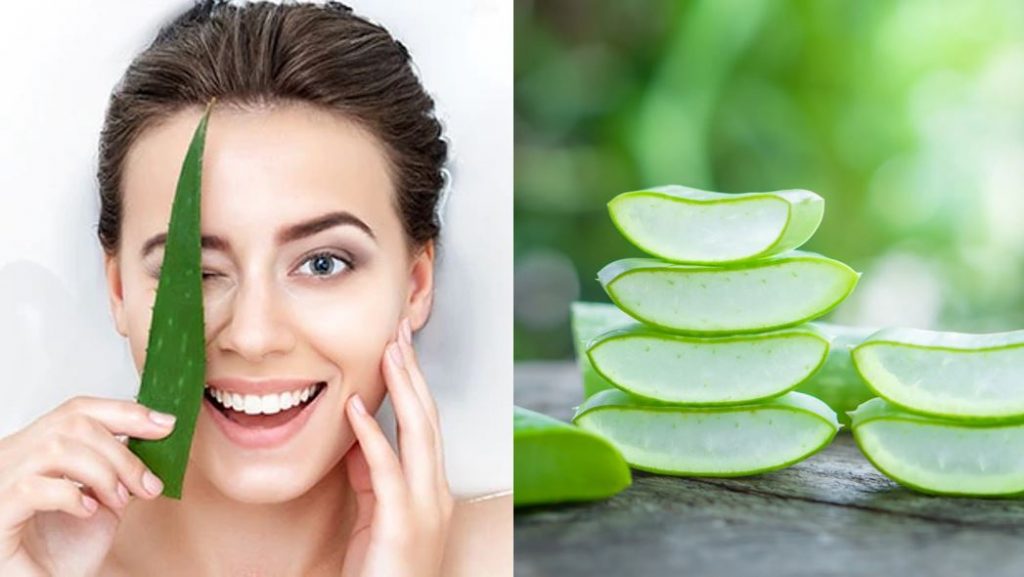By LEKPEA BUEKOR
Aloe Vera, the simple houseplant, is a ‘wonder’ plant, often disguised in plain sight. “It is a gel-like substance gotten from aloe, which is a succulent plant that commonly grows in hot, arid environments,” New York-based cosmetic dermatologist Michele Green, M.D., says.
This plant has been in existence for centuries, and thus, it is known as “a plant of immortality.” It has been used as a medicinal herb. It is abundant in essential nutrients, curbs indigestion, and boosts immunity.
Aloe vera gel is beneficial for one’s skin, particularly the face and hair. However, this article is limited to the benefits of aloe vera to the outer skin and not hair.
Here are just some of the ways aloe vera can improve your existing skin-care routine according to dermatologists:
- It keeps acne at bay
Aloe vera comprises naturally occurring salicylic acid, urea nitrogen, cinnamic acid, phenols and sulfur—all of which curb the growth of microorganisms like fungi, bacteria and viruses. “It also has anti-inflammatory capabilities, which suppresses P. acnes, the bacteria that causes acne,” says Green. “Salicylic acid is presently one of the best means to deter acne since it removes dead cells from the outer layer of the skin and reduces redness and inflammation,” she further explained.
- It relieves sunburns and skin injuries
“Aloe vera relieves sunburns and skin injuries by enhancing collagen breakdown and cross-linking. This enables the removal of any resulting scar tissue and enhances the wound healing process,” says Green. Aloe also contains compounds called aloin and anthraquinones, which have anti-inflammatory and antioxidant benefits that can aid in ameliorating pain and facilitate recovery.
It is important to note that Aloe vera should only be used on mild to moderate and first and second-degree burns. Doctors should treat more severe burns in the hospital.
- It clears off makeup
“Since aloe vera is often mild and soothing on the skin and has a gel-like consistency, it could be a good, natural alternative for wiping out makeup,” says Dr Noelani González, MD, director of cosmetic dermatology at Mount Sinai West in New York.
Just shove a dollop of 100 per cent aloe vera gel onto a cotton ball and use that to wipe your face. “I usually advise doing a test spot on your arm before applying it on your face to ensure you don’t have any undesirable reactions,” Dr González recommends.
- It clears dark spots and stretch marks
Aloe vera contains two compounds that aid in fading dark spots and stretch marks: aloesin and aloin,” says Dr Green. In one study carried out on 60 women, aloesin was applied on their akin four times a day for 15 days. The results showed that aloe vera was found to help treat Ultraviolet induced and post-acne hyperpigmentation. It is also revealed that aloin damaged melanin cells (an over secretion of which causes dark spots to develop) by obstructing activities of an essential enzyme, tyrosinase.
- It slows down signs of ageing
Since aloe vera contains vitamins C and E, it aids in preventing the formation of free radicals. Free radicals are molecules that facilitate the damage of cells in the body. However, the salicylic acid that aloe vera contains functions as a gentle exfoliant. Once those dead skin cells are cleared, your other skin-care products can effectively penetrate the skin and function better.
- Alleviates skin conditions
Due to aloe’s anti-inflammatory properties, flare-ups of psoriasis~which is a non-contagious inflammatory condition that results in red, itchy and scaly patches, can be adequately managed.
Ditto eczema, a skin disorder that stimulates your skin to become red and itchy and more liable to fungal and bacterial infections, can be curtailed with aloe vera.
“Aloe possesses antiseptic, antibacterial, anti-fungal and anti-inflammatory properties that may alleviate eczema by hydrating and protecting it from microbes,” says Green.
- Moisturizes the Skin
Aloe vera contains substances called humectants. These substances attract water from the air and promote water retention. It is believed to be exceptionally beneficial for dry skin types. “Aloe contains mucopolysaccharides, which attract and binds moisture into the skin,” says Green. “It also has cohesive impacts by packing together flaking epidermal skin cells, which helps make the skin softer and improves the skin’s quality.”
Aloe vera works perfectly well as an aftershave therapy. This is because the gel helps retain the water and keeps the skin hydrated and heals cuts and burns from blades.
Incorporating Aloe Vera or its products as a part of your routine skin-care products can do much for your skin. You should give this a try and watch your skin glow.





Comments are closed.